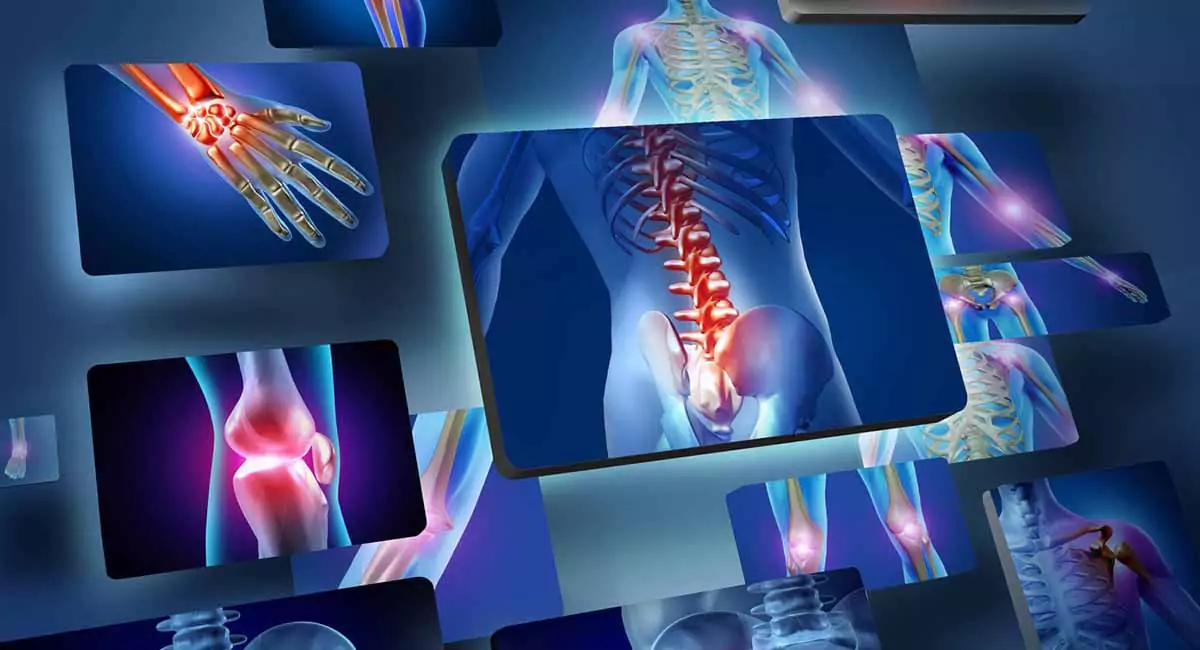
Arthritis is a prevalent and often misunderstood condition that affects millions worldwide, including a significant portion of the population in the UAE. Characterised by joint pain, stiffness, and inflammation, arthritis comes in various forms and can lead to long-term disability if not properly managed.
We spoke to Dr. Humeira Badsha, Founding Member of the Middle East Arthritis Foundation, to gain insights into the prevalence of arthritis in the UAE, the challenges patients face in accessing care, and the latest advancements in treatment. Dr. Badsha also highlights the critical connection between arthritis and mental health, offering valuable guidance on managing this condition holistically and improving the quality of life for those affected.
How common is arthritis in the UAE, and what types do you see most often in your practice?
Arthritis affects about 1 in 5 people in the UAE, with osteoarthritis and rheumatoid arthritis being the most common types. Osteoarthritis is common among older adults due to joint wear, while rheumatoid arthritis, which impacts more women, is an autoimmune disease.
Projections suggest that RA cases could double by 2030. Despite the variety of arthritis types, public understanding remains limited, which can lead to gaps in medical care and treatment. Many people mistakenly view arthritis as a natural part of ageing, not recognizing its significant impact—it’s a major cause of disability affecting over 350 million people worldwide. This is why raising awareness and improving education about this debilitating disease is essential for better management and support for those affected.
What are some of the biggest challenges people in the UAE face when it comes to getting the right treatment and support for arthritis?
In the UAE, 20% of the population has some form of arthritis, with conditions like lower back pain and knee osteoarthritis being prevalent. A lack of awareness, varied symptoms, and misconceptions about the disease create barriers to proper care. Improving education and access to healthcare resources is essential for better management.
Addressing these challenges requires a multifaceted approach, including education and improved access to healthcare resources, to ensure that those affected receive the support and treatment they need.
Arthritis is often seen as a physical condition, but how does it affect mental health, and why is this connection so important to address?
Arthritis affects mental health by causing chronic pain, limited mobility, and emotional distress, leading to anxiety and depression. By recognizing and addressing the intertwined nature of physical and mental health, we can enhance the quality of life for those living with arthritis, empowering them to navigate their challenges with resilience.
What kind of emotional or psychological impact do you notice in your patients with arthritis, and how do you help them cope with it?
Patients often experience frustration, anxiety, and depression due to chronic pain and flare-ups. Open communication, education about the disease, mindfulness techniques, and connecting patients with support networks help them manage emotional challenges and build resilience.
How can families and friends be more supportive of someone living with arthritis, not just physically but emotionally as well?
Families and friends can assist by helping with daily tasks like chores, grocery shopping, or meal preparation, especially during flare-ups. Joining them for gentle exercise or activities can also encourage mobility. It’s important to learn about arthritis to better understand its challenges. Emotionally, being an active listener can make a significant difference, allowing them to express their struggles. Offering encouragement for small victories and being patient through good and bad days fosters a comforting environment.
In your experience, how has the understanding of arthritis and mental health changed in the UAE over the years? Is there still a stigma around these issues?
In recent years, the understanding of arthritis and its connection to mental health in the UAE has significantly evolved. There has been a noticeable increase in awareness regarding the mental health challenges associated with chronic diseases. Initiatives like patient support groups and programs such as World Arthritis Day have played a crucial role in encouraging individuals to openly discuss their experiences with depression, anxiety, and other mental health issues related to their conditions.
As a result, the stigma that once surrounded these topics has diminished considerably. Patients now feel more empowered to share their struggles and seek help, fostering a more supportive community. While some stigma may still exist, the overall landscape is much more accepting, allowing for better dialogue and understanding around both arthritis and mental health. This shift is a positive development that can lead to improved patient outcomes and quality of life.
How important is early diagnosis for arthritis, and what steps are being taken to make people more aware of the signs before it gets worse?
Early diagnosis of arthritis is crucial as it can significantly impact the effectiveness of treatment and the overall quality of life. When arthritis is diagnosed early, it allows for timely interventions that can help manage symptoms, prevent further joint damage, and maintain mobility.
To raise awareness about the signs of arthritis, various steps are being taken. On October 12th, health organizations like the Middle East Arthritis Foundation are launching educational campaigns for World Arthritis Day to raise awareness and support for those with arthritis. These initiatives aim to inform the public about common symptoms such as joint pain, swelling, and stiffness, while also training healthcare
providers to recognize early signs and encourage patients to seek help sooner.. Additionally, community outreach programs and workshops are being implemented to engage individuals in discussions about joint health and the importance of early detection.
Social media campaigns and informational resources are becoming increasingly available, helping to spread awareness about the importance of recognizing signs early. By promoting these initiatives, we can empower individuals to seek medical advice promptly, ensuring that arthritis is diagnosed and treated before it progresses.
For younger people living with arthritis, what unique challenges do they face in terms of their mental health and daily life?
Navigating healthcare can also be challenging, as they may encounter providers who aren’t fully attuned to the needs of younger patients, resulting in delays in appropriate treatment and support. Overall, the combination of physical limitations, social isolation, and the pressure to conform to typical life milestones can create a complex emotional landscape for younger people with arthritis. Organizations like MEAF aim to provide resources, support, and awareness to help address these challenges and empower younger individuals living with arthritis.
What are some simple lifestyle changes that can help people manage their arthritis better, both physically and mentally?
Managing arthritis effectively involves making simple lifestyle changes that enhance both physical and mental well-being. Key strategies include staying active with low-impact exercises like walking, swimming, or yoga to maintain joint flexibility and boost mood, and adopting a balanced diet rich in anti-inflammatory foods such as fruits, vegetables, whole grains, and omega-3 fatty acids while ensuring proper hydration.
By adopting these lifestyle changes, individuals can enhance their ability to cope with arthritis, fostering both physical health and mental well-being.
Are there any exciting new treatments or approaches that give hope to people living with arthritis, especially when it comes to improving their quality of life?
Ultrasound technology allows for early diagnosis and better treatment monitoring, while platelet-rich plasma (PRP) therapy shows promise for joint pain relief. These advancements offer more precise and effective options for improving quality of life.







